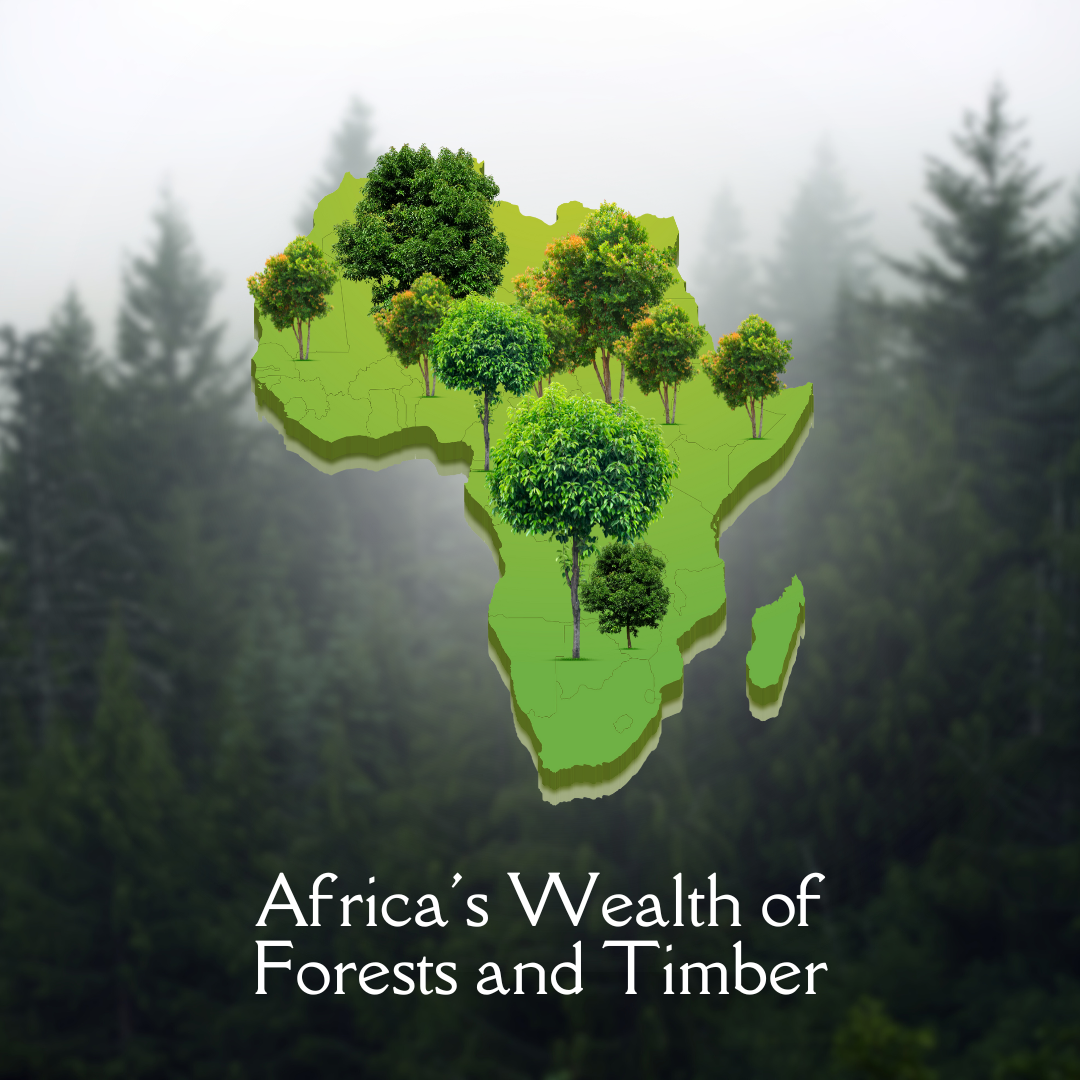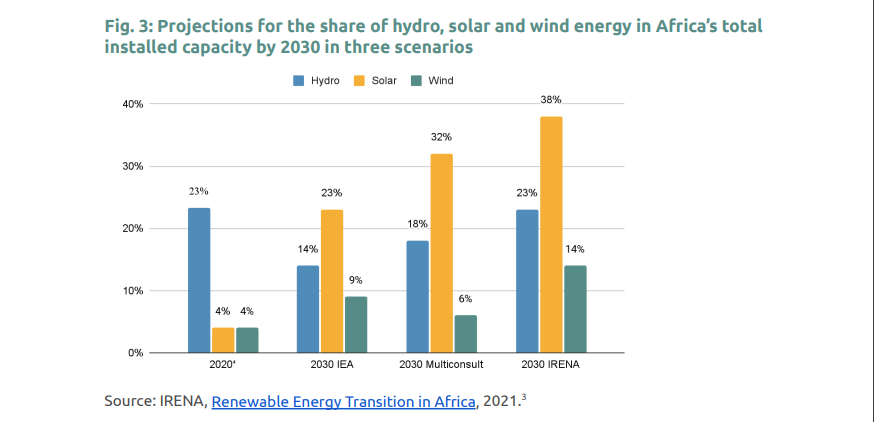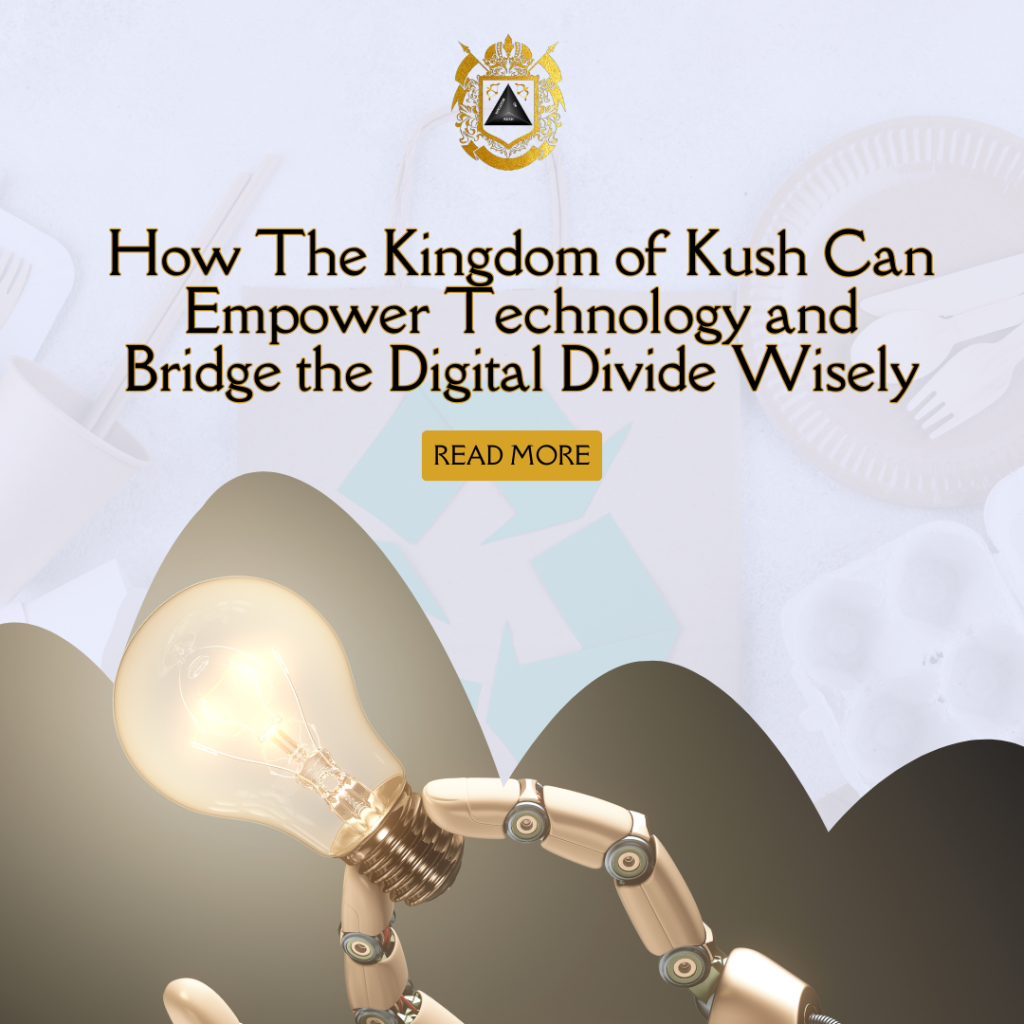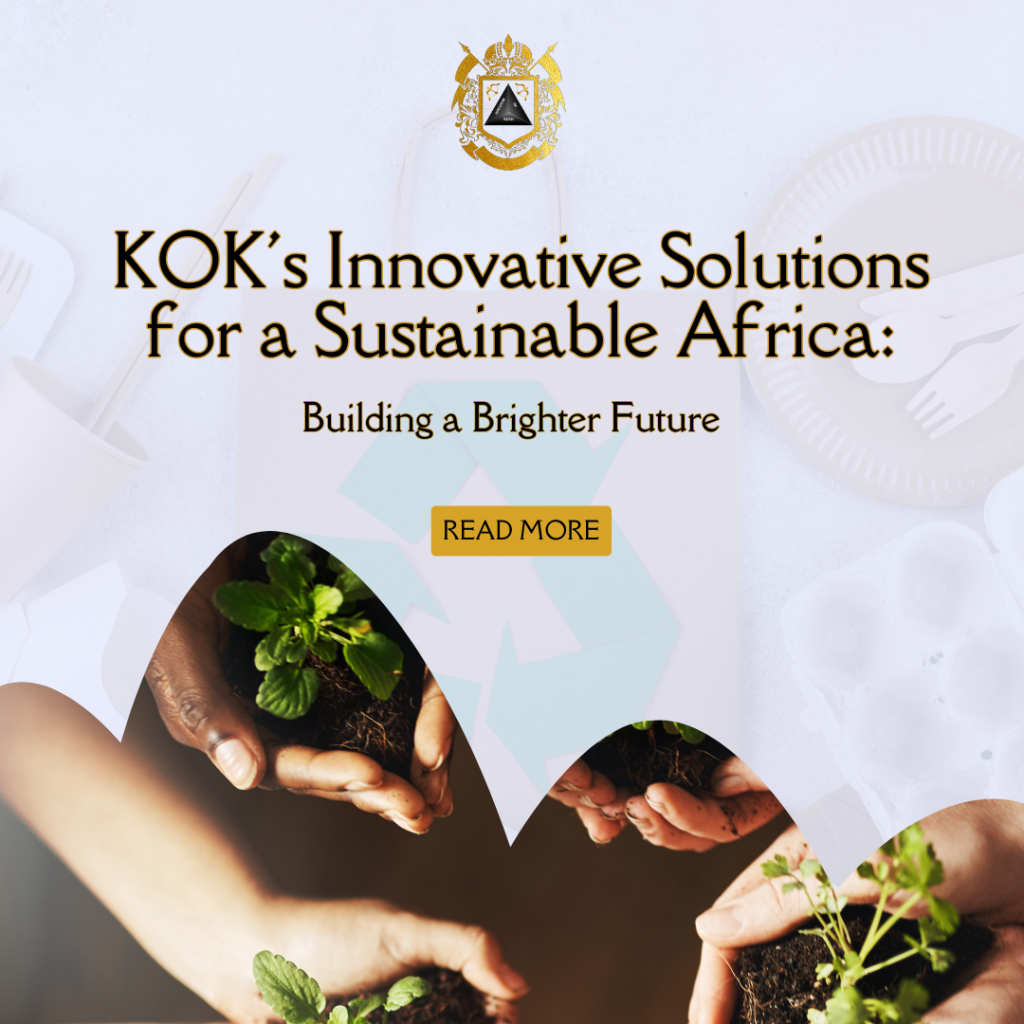From vast mineral deposits to flourishing agricultural lands, these resources, if cultivated responsibly, hold the power to dramatically elevate the quality of life for all its people. For too long, though, external forces have profited disproportionately from Africa’s natural endowments, sidelining the very nations that house them.
Today, there is a fresh narrative emerging: one where African nations take control of their resources to empower their people and create enduring prosperity. At the forefront of this movement is the Kingdom of Kush, a pioneer in self-sustained development and a testament to Africa’s potential for a brighter, self-determined future. Together, let’s explore Africa’s journey from exploitation to empowerment.
A Catalog of Africa’s Natural Resources
Africa’s earth is rich with promise. Nearly a third of the planet’s mineral wealth, 8% of global natural gas, and 12% of oil reserves are found in this continent. The continent is rich in precious metals, holding 40% of the world’s gold and 90% of key resources like chromium and platinum. Moreover, Africa has the highest global reserves of essential minerals like cobalt, diamonds, platinum, and uranium. Its fertile lands comprise 65% of the world’s remaining uncultivated arable land, and it harbors 10% of Earth’s renewable freshwater sources.

(Source: African Natural Resource Center)
From the abundant mineral deposits to the rich oils and gases hidden in its landscapes and the sparkling diamonds uncovered in its mines, Africa’s natural resources are vast and varied.
Yet, the bounties have often not benefited the people who walk this land. Profitable industries such as diamond mining have led to wealth for a few, not development for many. Botswana stands as an exception, a narrative of prosperity born from diamond management. Similarly, even Ghana began oil production in 2010 and though challenges persist, its experience shows that responsible resource management can lead to positive outcomes, but the broader story is of potential unfulfilled—a “resource curse” where abundance has not equated to societal stability.
The Kingdom of Kush is planning to transform this scenario and is committed to fostering a stable and welcoming business atmosphere. The Kingdom of Kush is setting itself up as a leader in effective governance and a top choice for investment, combining strong economic potential with the bonus of safety and reliability.
The Kingdom of Kush is leading major projects that form the foundation of its growth strategy. With a focus on renewable energy and advanced transportation networks, Kush is dedicated to building a future-ready, sustainable society that attracts investors and promotes shared advancement. Moreover, the Kingdom is pioneering various farming techniques such as smart and vertical farming across its territories to ensure Africa’s food security and supply produce worldwide.
Africa’s Wealth of Forests and Timber

Forests
Forests play a crucial economic role in Africa, contributing 6% to the continent’s GDP, which is the highest percentage compared to other continents. With the densest forest cover found in central and western Africa, these regions generate over 60% of their GDP from forestry.
The Kingdom of Kush understands the pivotal role of forests in environmental stability and economic prosperity. To safeguard this vital natural resource, the Kingdom actively implements sustainable forestry practices and invests in green technologies that align with its vision for a greener and more prosperous Africa.
Timber
Africa is a significant exporter of high-grade timber, such as mahogany and Okoume, predominantly harvested in the Congo Basin countries. These woods are vital for various industries, from construction to aviation, and are mainly sold to markets in Japan, Israel, and the European Union.
Conservation Strategies
Despite the economic importance, the forestry sector faces issues like illegal logging and the risk of certain tree species becoming endangered. Overharvesting and insufficiently rapid regrowth of trees threaten the precious rainforest habitats. Strategies are being adopted to balance economic development with forest conservation, an example being the Sangha Tri-National Reserve established to protect a vast rainforest area.
Fisheries

Marine and inland fisheries
More than 10 million Africans rely on fishing for their income, and exports from the industry are valued at $2.7 billion annually. Africa boasts rich marine and inland fisheries, including those in the Great Lakes and the Nile River, yet sustainable practices are critical to ensure these resources endure for future fishing.
Coastal and Inland Fish Harvesting
West Africa’s marine fisheries are particularly valuable, contributing 4.5 million tons of fish in 2000. Countries like Namibia and South Africa are large marine fish exporters. In Eastern Africa, countries benefit from fish caught in the Red Sea and Indian Ocean, ranging from small herring and sardines to larger, more lucrative fish like tuna and cod.
Freshwater Fisheries’ Contribution
Africa’s inland waters house more than 3,000 fish species and are responsible for a significant portion of the world’s inland fish production. Unlike marine catches, these fish are predominantly consumed within Africa, providing essential protein sources. Lake Victoria stands out as the world’s most productive freshwater fishery.
Conservation Efforts
Echoing the forestry sector’s challenges, fisheries also face challenges. Initiatives like the Partnership for African Fisheries are in place to enhance regulation and sustainable management to improve fisheries’ contributions to the economy and protect the resources for future generations.
Mining and Minerals: Africa is also endowed with a wealth of metals and minerals, being a primary source of uranium for nuclear energy, platinum for jewelry and industrial uses, nickel for manufacturing stainless steel and electronics, bauxite as the main source of aluminum, and cobalt for pigments and more. These resources place Africa as a vital player in various global industries.
Coal: In South Africa, coal represents a mineral commodity of significant added value. Expansive reserves are located under the Highveld of Mpumalanga and the Northern Free State, predominantly accessible at depths that facilitate straightforward extraction. The primary uses of coal are for overseas exportation and the generation of electricity.
The Kingdom of Kush reflects economic ambition through its roadmap, which is ambitious and multi-faceted: aiming to boost Africa’s global economic standing. It is spearheading over 25 cross-country agri-resource initiatives and pioneering infrastructural endeavors like renewable energy projects and regional connectivity hubs.
The Kingdom of Kush is setting up expansive industrial areas across Africa to transform local raw materials into finished products. By doing this, it aims to satisfy both the domestic and global market needs. Take, for instance, metals like lithium, cobanlt, and manganese, which are key in electric vehicle (EV) production — the Kingdom is moving to establish EV factories and is inviting car makers to build their plants here. To support this, Kush will offer tax breaks, invest in essential infrastructure, supply raw materials affordably, and generate jobs for the African people.
Historical Context of Resource Exploitation and A New Vision
The shadows of colonial exploitation loom large over Africa, leaving a legacy of foreign control that extends beyond the era of independence. This exploitation has led not only to social strife and environmental damage but also indirectly fueled a call for change. Voices from across the continent and beyond now demand a new approach to managing and benefiting from Africa’s riches.
With its foundations deeply rooted in historical significance, the Kingdom of Kush embodies a vibrant vision for the future. It is strategically positioned in Bir Tawil, a place ripe with potential, determined to pave a sustainable path forward through technological advancements — a digital-first smart city-state that also honors its rich cultural heritage.
Using Africa’s Resources for Sustainable Progress

Even though Africa is bestowed with a wealth of natural resources, which shows immense potential to drive human and economic progress on the continent, there are barriers. As a testament to its dedication to using resources for sustainable progress, the Kingdom of Kush is making comprehensive efforts to address environmental concerns and governance issues by integrating them into its socio-economic model.
Sustainable Development and Governance Challenges
- Sustainable development and governance issues are at the forefront.
- This includes environmental concerns, the fight against desertification, conserving resources, and the uprooting of communities from their ancestral lands.
- Adding to these problems is the absence of coherent national policy directives and inadequate investment choices and revenue management strategies.
Weak Institutional Frameworks
- The situation further deteriorates with fragile institutional structures that lead to insufficient border controls, compromised human security, a downturn in investment, suboptimal policy formulation, and a reduction in both biodiversity and formal trade.
- These weak frameworks prevent African countries from achieving optimal development from their natural resources.
The Urgency to Address Challenges
- The need to safeguard natural resources is increasing as consumption increases and choices between alternative uses of resources, such as mining versus tourism-based conservation, become starker.
- Moreover, persistent socioeconomic issues, such as poverty, unemployment, inequality, and the amplified voices and impact of Civil Society Organizations (CSOs), are mounting pressure on governments and investors to ensure the equitable distribution of natural resource wealth.
The Future of Business and Industry in Africa

Africa’s Resource Opportunity
Sub-Saharan African nations are on the threshold of an era promising reinvention and growth, and the Kingdom of Kush is leading the way with its resource management policies and developmental strategies aimed at sustainable growth and long-term prosperity.
The evolution of energy and the growing necessity for various metals and minerals present these resource-rich countries with a remarkable opportunity. They have the chance to significantly utilize these assets to fund public ventures, diversify their economies, and increase access to energy.
Unclaimed Potential of Natural Wealth
The “Africa’s Resource Future” report by the World Bank has surfaced a pressing issue: African governments only secure about 40% of potential revenue from their natural resources. At this critical juncture, where slow economic momentum and hefty debts burden countries, governments could significantly augment income from resources like minerals, oil, and gas by implementing a robust array of policy enhancements, reforms, and investments in fiscal systems and championing governance excellence. Instituting comprehensive taxation of natural assets is pivotal to ensure the full pricing of the environmental and societal tolls not consistently accounted for by producers, including those from petroleum resources. Neglecting this could result in implicit production subsidies and contribute to increased carbon emissions.
Enhancing Government Revenues
According to James Cust, Senior Economist in the World Bank Africa Region, optimizing government revenues from natural resource sectors can benefit not only the population by expanding fiscal capacity but also the planet by reducing concealed production subsidies. This is particularly crucial for countries striving to manage debt and invest in development.
Meeting Global Demand for Green Technology
As the world shifts from fossil fuels to sustainable green technologies, the demand for minerals and metals vital for renewable energy solutions is on the rise. Africa holds vast deposits of cobalt, lithium, copper, nickel, and rare earth elements, essential for wind turbines, solar panels, and batteries. However, history has shown that natural resource wealth does not automatically equate to widespread growth and prosperity.

Image Source: (2024 01 Developing Africa’s mineral resources)
Overcoming the Resource Curse
Many Sub-Saharan African countries face the ongoing challenge of turning their mineral, oil, and gas sector wealth into sustainable development. Fluctuating global commodity prices often lead to poor public resource management and fiscal instability. These cycles can diminish economic resilience and contribute to a “resource curse,” where an abundance of resources does not lead to among the population.
Prosperous Policies for Resource Management
The World Bank report advocates for strategies that encompass the full capture of resource rents and are conducive to private investment while preparing for cyclical market conditions. Policies may involve reallocating resource revenues to develop human capital — such as health and education — and building infrastructure that supports diverse, sustainable economies.
Fostering Regional Economic Integration
The potential of the African Continental Free Trade Area agreement could be game-changing. The recommended gradual reduction of tariffs and possible standardization of mining taxes and royalties could significantly bolster regional cooperation.
Albert Zeufack, the World Bank Country Director for several African nations, emphasizes that a joint strategy in the extractive industries could lead to more significant value addition and job creation than extraction alone. The AfCFTA provides a unique opportunity to develop an interconnected value chain that benefits from resource and skill sharing and access to larger markets.
The Foundation for a Just Transition
A fair and effective use of Africa’s natural wealth is crucial for both the continent and the global community. Equitable governance and savvy macro-fiscal management of resource income are fundamental to preparing for a future that is mindful of emissions while playing a transformative role in Africa’s economic progress.
The Kingdom of Kush is not just imagining a new future; it is actively constructing it, with environmental responsibility and innovative industrialization at the heart of its agenda, pushing Africa toward the forefront of global significance and transforming the continent into a powerhouse of sustainable development.



